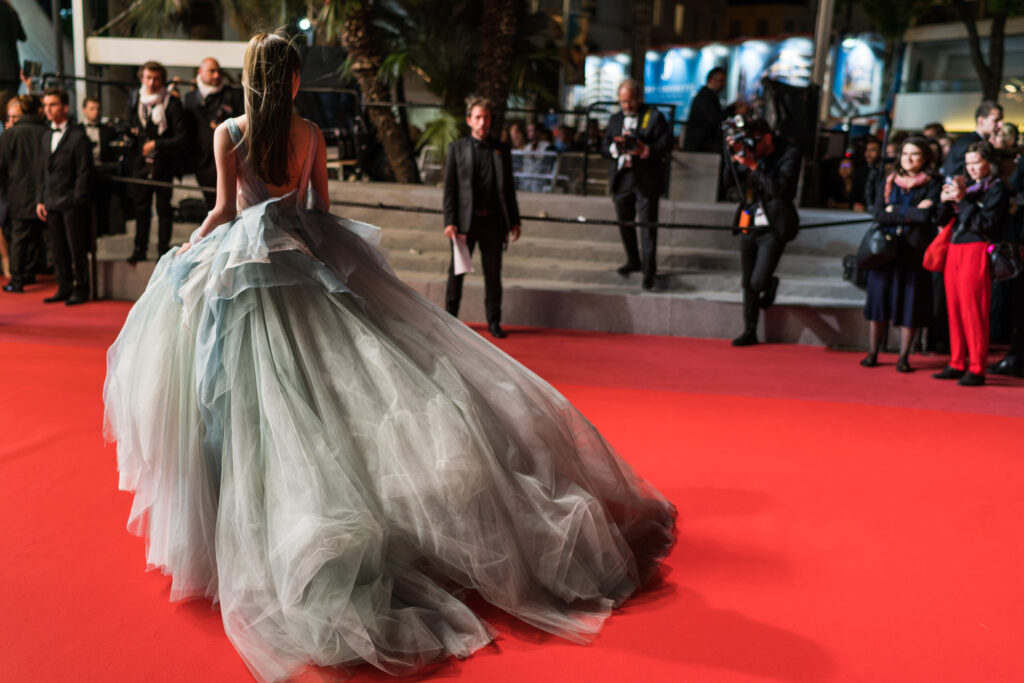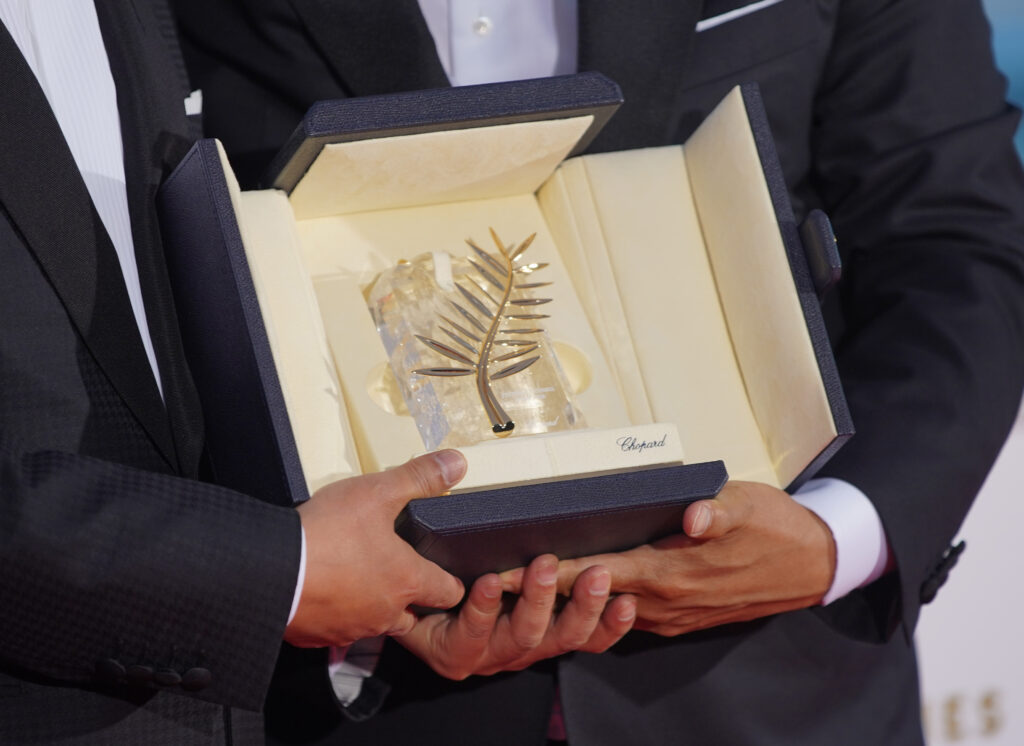The Seventh Art. A Cure for Globalized Isolation
The concept of The Seven Arts is more powerful every day, as it seems that by our basic human nature we strive for the divine, the aesthetic, the beautiful. In 1911, Italian artist Ricciotto Canudo established the seven arts as architecture, sculpture, painting, music, poetry, dance, and cinema. It is perhaps this Seventh Art that which encompasses all the other six. You can interpret film as a moving painting, or maybe an animation of illustrated poetry. Sculpture is the actors themselves. Dance is the performance, music a constant to evoke the desired ambiences, and architecture either a main character or a background necessity. As the Seventh Art continues to prove itself a powerful medium with the potential to impact us deeply within ourselves and as a society, it is only fair to highlight the influence that the Cannes Film Festival boasts as one of the “Big Five,” or possibly the biggest, film festival since its first edition in 1946.

photo by taniavolobueva, via Shutterstock.com
Officially known as Festival de Cannes, it has gained unparalleled prestige as the place to see and be seen by all those passionate for the craft of cinema. A window of opportunity for actors, producers, and filmmakers alike, the festival has seen the beginning of careers to auteurs such as Steven Soderbergh and Quentin Tarantino. It is not a surprise that the festival takes place in a location as worthy of glamor as the guests to the red carpet: the Palais des Festivals et des Congrès in Cannes, France. Rich history, culture and absolute luxury permeate the festival and all the dream-like experiences it offers. History that has been and continues to be written by highlighting artistic films from all around the world, breathing fresh diversity into what could be a fragmenting world.
You could argue that it is regrettably ironic that in a constantly internationalized and broadened world, division between the people is like a virus that, much like the unfortunate pandemic, has isolated the globalized citizen. It is worth mentioning that as we refer to the Seventh Art, we intrinsically refer to the community experience of enjoying an artwork accompanied by others that for a brief moment cease to be strangers and become colleagues or friends, united under our human need for beautifully significant art.

photo by Tima Miroshnichenko
An already established theme for this year’s edition for the Cannes Film Festival is the celebration of female filmmakers, especially considering it boasts a record number of female filmmakers in the festival’s history, rubbing elbows with the likes of Martin Scorsese, Wes Anderson, Ken Loach and Hirokazu Kore-eda. However, diving into the films themselves, the context in which they were made and the context in which they will be seen, we can highlight five main themes that will affect what each film portrays and how they are perceived.
Separation. A bittersweet consequence of years frozen in time, not necessarily starting in March 2020 but definitely accentuated by the reality of the virus, is the separation of families and breaking up of communities caused people to seek shelter in cinema, only they could not go beyond a small screen at home. The big screen, as lonely as many, could not be reached. Now, a few years have passed and the world is starting to come out of its shell, but as catastrophe tends to force people to, many are left to a search of finding something to express themselves or relate to. All the films that will be presented in the Cannes Film Festival offer dozens of authentic stories for viewers to live and experience a changing world from multiple perspectives, some happy, some sad, all worthy of consideration for cultured minds. If watching a movie is living another life within your own lifetime, imagine what adventures, heartbreaks and exuberance such a distinguished film festival will grant those lucky enough to attend.
Unity. Though some people were lost, some families were broken, not all has to be seen with a pessimistic lens. These past years also offered a much appreciated pause to the lives of many, a reconnection to loved ones, reunions around the dinner table, on the sofa with a bowl of popcorn. Having strengthened relationships closest to you, what better moment to step out of your comfort zone and mingle with strangers, than attending one the most distinguished film festival in history. Beyond the glitz and glamor, that is what the Cannes Film Festival is about: uniting people and cultures through the appreciation of art.
Cultural change and isolation. If you think about how the globalization of our modern world opens a path of internationalization that, ironically, causes isolation it is not hard to realize that places of congregation are more valuable every day. The easily accessible information through screens makes the need of going out to the real world disappear as it envelops society in a blanket of well informed loneliness. As the world has better and easier access to what happens on the other side, it tends to overlook that which is closest, as well as get desensitized to the wonders of cinematic art. The Cannes Film Festival serves as an antidote to such a virus, as it awes and inspires, allowing viewers to reconnect to others and themselves through the possibilities of continuously evolving film technologies. It takes an artform that is suffering through technological changes, such as streaming services that are now a household staple, and brings it back to its roots, to its essence. Truth be told, there is no experience like enjoying a magnificent film in a theater.
Entertainment. Art takes us back to basics, back to our nature as humans. Art, more than just fun and expression, is a basic necessity, to say what cannot be said, to express feelings and tell stories, to enjoy and share pleasure… The Cannes Film Festival celebrates what is a virtue, talent, blessing and curse as humans: art for the sake of being art. Forever intertwined with history and culture, with society and how it perceives itself, the Seventh Art provides escapism to those who need it, and it centers and reconnects for others. In the constant hustle and bustle of life and the four previously mentioned pillars, a film festival might be just what we need. Let us end with this, if life is an ocean where we are constantly swimming to stay afloat, the Cannes Film Festival is a much needed breath of air that renews our strength so that we keep our head high, hopeful and looking forward.
Understanding the importance and meaning behind the meticulously crafted film, it is only fair to look at Cannes’ official list of films to be featured as what it truly is: a work of art.

by Jack Garofalo/Paris Match/Scoop, design by Hartland Villa, courtesy of Cannes Film Festival
In Competition:
Opening Film – Jeanne Du Barry by Maïwenn. Out of Competition.
Club Zero by Jessica Hausner; The Zone of Interest by Jonathan Glazer; Fallen Leaves by Aki Kaurismaki; Les Filles D’Olfa by Kaouther Ben Hania; Asteroid City by Wes Anderson; Anatomie d’une Chute by Justine Triet; Monster by Kore-eda Hirokazu; Il Sol Dell’Avvenire by Nanni Moretti; L’Été Dernier by Catherine Breillat; Kuru Otlar Ustune by Nuri Bilge Ceylan (About Dry Grasses); La Chimera by Alice Rohrwacher; La Passion de Dodin Bouffant by Tran Anh Hun; Rapito by Marco Bellocchio; May December by Todd Haynes; Jeunesse by Wang Bing; The Old Oak by Ken Loach; Banel E Adama by Ramata-Toulaye Sy; Perfect Days by Wim Wenders and Firebrand by Jarim Aïnouz.
Un Certain Regard:
Opening Film – Le Règne Animal by Thomas Cailley
Los Delincuentes by Rodrigo Moreno (The Delinquents); How To Have Sex by Molly Manning Walker; Goodbye Julia by Mohamed Kordofani; Kadib Abyad by Asmae El Moudir (The Mother Of All Lies); Simple Comme Sylvain by Monia Chokri; Crowrā by João Salaviza, Renée Nader Messora (The Buriti Flower); Los Colonos by Felipe Gálvez (The Settlers); Omen by Baloji; The Breaking Ice by Anthony Chen; Rosalie by Stéphanie Di Giusto; The New Boy by Warwick Thornton; If Only I Could Hibernate by Zoljargal Purevdash; Hopeless by Kim Chang-hoon; Terrestrial Verses by Ali Asgari, Alireza Khatami; Rien À Perdre by Delphine Deloget and Les Meutes by Kamal Lazraq.
Out Of Competition:
Indiana Jones and The Dial of Destiny by James Mangold; Cobweb by Kim Jee-woon; The Idol by Sam Levinson and Killers Of The Flower Moon by Martin Scorsese.
Midnight Screenings:
Kennedy by Anurag Kashyap; Omar La Fraise by Elias Belkeddar and Acide by Just Philippot.
Cannes Premiere:
Kubi by Takeshi Kitano; Bonnard, Pierre et Marthe by Martin Provost; Cerrar Los Ojos by Victor Erice and Le Temps D’Aimer by Katell Quillévéré.
Special Screenings:
Man In Black by Wang Bing: Occupied City by Steve McQueen; Anselm by Wim Wenders and Retratos Fantasmas by Kleber Mendonça Filho (Pictures Of Ghosts).
-

photo by Denis Makarenko, via Shutterstock.com
Overall,
The festival is an opportunity for movie enthusiasts to appreciate international movies and get familiar with new cultures and artistic experiences. For the general public, the festival is an occasion to discover new talents and trends in the film industry. Join the great minds congregating in France to capture, discuss and experience this change. As they do, enjoy the films to be featured while keeping in mind that cinema is much more than a moment of entertainment. It is a mirror to the past and the future. A mirror to yourself. Being part of the Cannes Film Festival is being part of the history of the Seventh Art and all that it exposes and implies in our ever-changing society. That and much more is forever treasured in the prestigious and timeless Festival de Cannes.